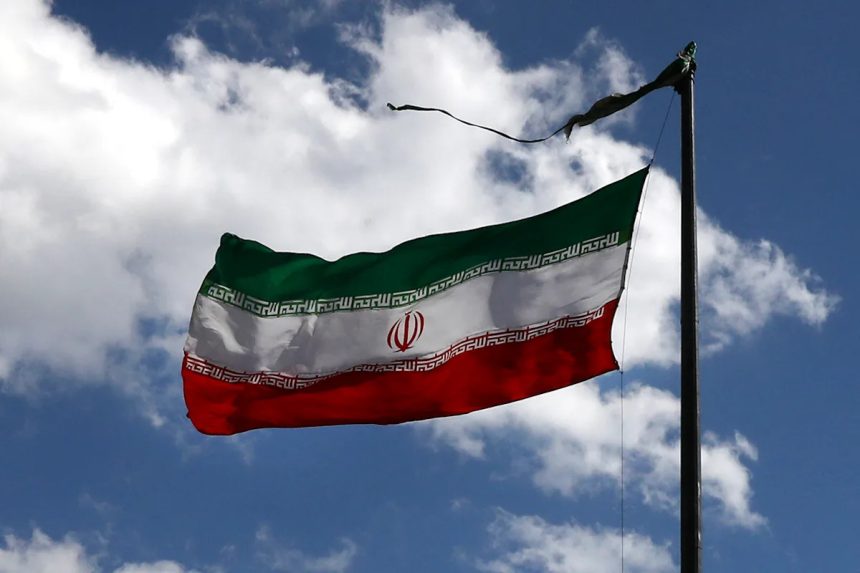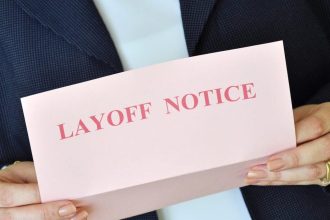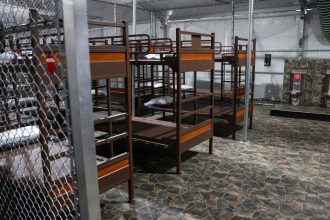Iran has promised reciprocal action following Australia’s decision to expel its ambassador in Canberra over accusations that Tehran was behind anti-Jewish attacks in the country.
On Tuesday, Iran’s Foreign Ministry spokesman Esmaeil Baghaei “absolutely rejected” Australia’s accusations, saying “any inappropriate and unjustified action on a diplomatic level will have a reciprocal reaction”.
Baghaei also said the measures appeared to be “influenced by internal developments” in Australia, including weekend protests across the country against Israel’s war on Gaza, which organisers said were the largest pro-Palestine demonstrations in Australia’s history.
“It seems that this action is taken in order to compensate for the limited criticism the Australian side has directed at the Zionist regime [Israel],” he added.
Earlier on Tuesday, Australia’s Prime Minister Anthony Albanese said Iran was behind the torching of a kosher cafe in Sydney last October and directed a major arson attack on a synagogue in Melbourne in December.
There were no casualties in either of the attacks where assailants set fire to the properties, causing extensive damage.
Al Jazeera’s Tohid Asadi, reporting from Tehran, said Iran sees Australia’s actions “as a continuation of hostile actions by the Australian side over the past years”.
“Australia has imposed several sanctions [on Iran], for example, in 2024 after Iran’s retaliatory action to attack the Israeli territory”, he said, adding that Tehran sees these latest moves “as another sign of Australia siding with the Israelis”.
Expelled ambassador ‘vocal in his support for the Palestinian cause’
Australia declared the Iranian ambassador, Ahmad Sadeghi, “persona non grata” and ordered him and three other officials to leave the country within seven days. Australia’s Foreign Minister Penny Wong said the move marked the first time Australia has expelled an ambassador since World War II.
Australia also withdrew its ambassador to Iran and suspended operations at its embassy in Tehran, which opened in 1968.
Wong added that the government will continue to maintain some diplomatic lines with Iran to advance Canberra’s interests.
Sadeghi was “vocal in his support for the Palestinian cause”, Foad Izadi, a world studies professor at the University of Tehran, told Al Jazeera.
“That is the main reason for Australia’s decision to expel him. Just a few days ago, we saw the largest pro-Palestine demonstrations in many Australian cities.
“Expelling a country’s ambassador is rarely done, and the fact that the Australian government has done this is an indication that … they’re afraid of their own population and they’re afraid of the demands this population [makes] when it comes to the issue of genocide in Palestine.”
PM Albanese also said, “… the government will legislate to list Iran’s Revolutionary Guard Corps, the IRGC, as a terrorist organisation.”
The Australian Security Intelligence Organisation is investigating possible IRGC involvement in other anti-Jewish attacks since Israel’s war on Gaza began in October 2023.
Izadi rejected those claims, saying it “has not provided any evidence”. He believes the Australian government has taken these decisions as it “is worried about the fact that the Australian people are seriously questioning Australia’s support for Israel” and “demanding that the government be more active in opposing the genocide in Palestine”.
Australia’s moves against Iran come as the country’s ties with Israel plummet over its criticism of Israeli-imposed famine and the war on Gaza, as well as its decision to join France, the United Kingdom and Canada in recognising a Palestinian state at the United Nations General Assembly in September.
Last week, Israel’s Prime Minister Benjamin Netanyahu called Albanese a “weak politician who betrayed Israel and abandoned Australia’s Jews”.
The Australian government has hit back at Netanyahu, with Minister for Home Affairs Tony Burke saying that strength was not measured “by how many people you can blow up or how many children you can leave hungry”.









